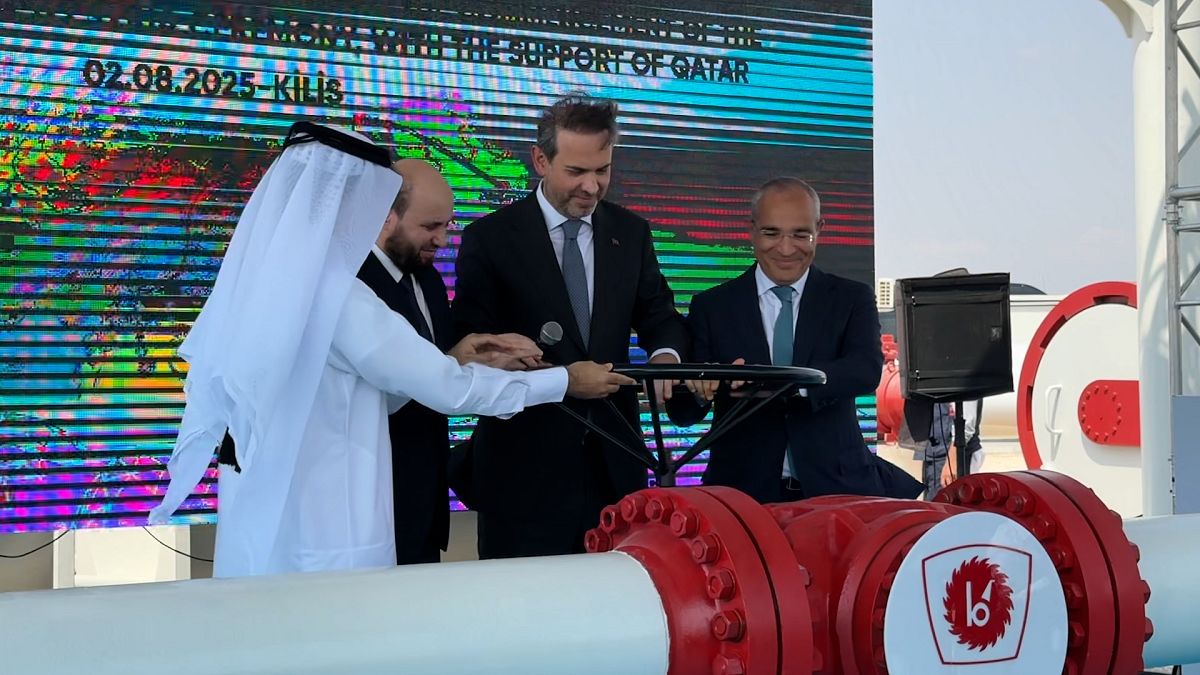

In an increasingly interconnected world, recent developments in energy infrastructure, migration policies, and geopolitical tensions highlight the complex dynamics at play. This week brings news from Southwest Asia to Europe and beyond, emphasizing international cooperation and challenges.
The inauguration of the Kilis-Aleppo natural gas pipeline marks a significant advancement in regional energy cooperation. This project, backed by Turkey, Qatar, Azerbaijan, and Syria, promises to deliver electricity to five million households in Aleppo. Turkish Minister of Energy and Natural Resources, Alparslan Bayraktar, has urged European countries to support such infrastructure efforts to create conditions conducive to the return of Syrians from Europe. This development underscores a collaborative effort to provide stability and energy security to a region long affected by conflict.
Meanwhile, on the European front, discussions around migration flows have prompted significant engagements among leaders. A recent meeting between Italian, Turkish, and Libyan leaders sought to address the substantial flow of migrants crossing from Libya to Europe. The United Nations refugee agency reported a noteworthy increase in these crossings, with numbers more than doubling from 2020 to 2021. This meeting seeks to establish proactive measures and support agreements that might reduce the challenges faced by migrants, as well as the regions they migrate to, thereby fostering a more balanced and humane management of migration flows.
In the Balkans, Kosovo’s political landscape is under scrutiny as the Constitutional Court faces a deadline to resolve a six-month parliamentary deadlock. The ongoing political standoff has left the country’s governance in uncertainty, necessitating clarification of the voting method for the parliament speaker. This resolution is crucial for stabilizing Kosovo’s political environment, enabling the nation to move forward constructively.
Further afield, New Zealand’s geopolitical scene experienced a notable development with the opening of the FBI’s first office in the country. This move, however, has prompted reactions from China, reflecting the nuanced balance of power and the growing emphasis on international security alliances. The United States Defense Secretary highlighted China’s rising influence as a prompt for Indo-Pacific nations to reconsider their military expenditures, suggesting a new phase of strategic international relations.
In the Middle East, tension continues to simmer as Hamas released a second video of an Israeli hostage, reaffirming its stance on maintaining arms until an independent Palestinian state is established with Jerusalem as its capital. This event emphasizes ongoing challenges in achieving peace in the region, while also highlighting the voices calling for negotiations to secure the safe return of hostages as a critical step towards resolving conflicts.
These stories, while distinct, share an underlying theme of international collaboration and the persistent quest for stability in regions marked by historical and contemporary challenges. As these events unfold, they offer a reminder of the interconnected nature of global affairs and the continuous efforts required to foster peace, security, and cooperation among diverse nations and communities.
Source: {link}
